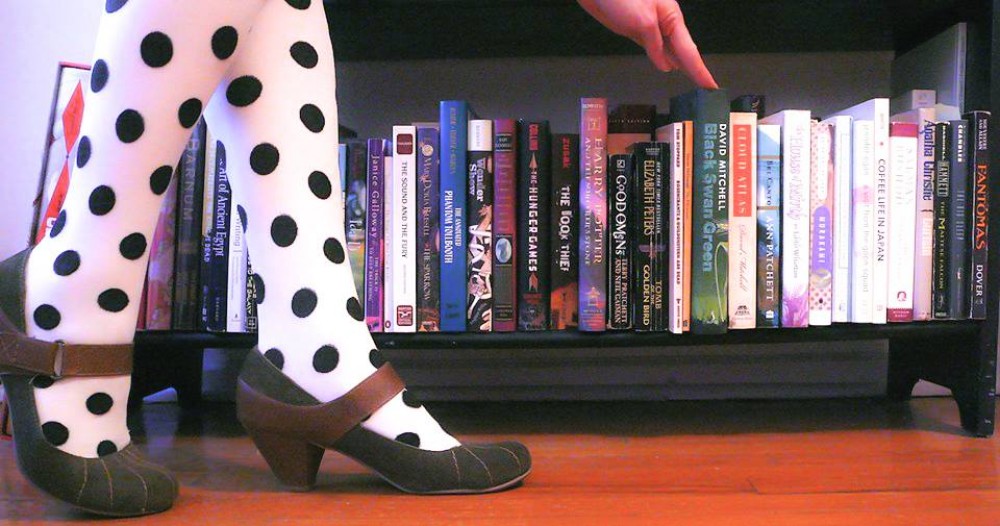I read an interesting School Library Journal article today by Amy Cheney entitled, “Gangs, Drugs, and Renewal: Self-Published Memoirs Offer Hope to Troubled Teens.” In it she discusses certain aspects and challenges of her job as a librarian for teens at Alameda County Juvenile Hall, specifically finding them appropriate and meaningful books to read. She emphasizes the popularity of true stories, to which the teens gravitate by virtue of shared experiences, and highlights the importance of self-published memoirs in the filling of this need:
There’s a huge market for autobiographies and biographies of African-American and Latino people who have experienced the streets and the criminal (in)justice system. My teens read biographies by Jimmy Santiago, Luis Rodriguez, Chef Jeff Henderson, Cupcake Brown, and Ishmael Beah, all of whom they’ve also met, and other adult authors. There’s also definitely a demand for self-published memoirs among reluctant readers—teens as well as adults, incarcerated or not. (For some great suggestions, see “Recommended reading,” on the opposite page.) People are reluctant to read for many reasons: some because they’ve never seen themselves reflected in a book and, therefore, don’t connect with the characters; others because they only want to read a certain type of book, such as a “true story.” The genre or type of book is more important to them than skillful editing, perfect pacing, positive reviews, correct spelling, and the rest.
I would like to take a moment to consider this last sentence. As one who loves language and is anal about grammar, a statement such as the one above always comes off as a bit blasphemous. However, after taking a breath and really listening to the reason behind why good editing needn’t be chief among a librarian’s criteria for book selection, Cheney makes a very convincing argument:
My first priority is to find books for my marginalized and, frankly, ostracized community that they can relate to, that inspire them, that reflect their experience in our society. Most important is that the story gets told and heard. I do have standards that, in general, relate to the story and the ability of the author to have some form of reflection. I don’t care as much about how a story is told, or—shocking to many—about grammar, spelling, or lack of editing. Those are details that are extremely important in our white, middle-class publishing community, which places a high value on the written word. Other cultures and communities have an oral tradition and care more about story and communication than precision.
She also points out that the pressure of not being able to write “properly” discourages many teens from trying for fear they will be judged by their mistakes. She encourages the belief that “[e]diting has its place after the story is told…in hopes that they [teens] won’t censor themselves because of a lack of confidence in spelling. It’s the same with books. The basic point of a book–and, indeed, of the written word–is to communicate.” I think Cheney’s point is an excellent one, especially with regards to her user group. It is probably not a philosophy that will work in all library settings, but the idea of reaching out and thinking broadly to meet a community’s needs is something every librarian should be doing. She has found a way to make reading approachable and personal to disadvantaged teens, which I would have certainly (and regrettably!) dismissed.
It’s always good to come across a story or a person who shakes up your principles by having the audacity to put them in perspective. Cheney did that for me. I hope you take a look at her article and her recommended reading list of “11 Titles You May Have Missed.” These could probably get tacked onto some of those lists people started making after the release of the infamous NPR YA book list (see that post here).

My kids just read a great book that I’d love to recommend. It’s called “Through Angel’s Eyes” by Steve Theunissen, you can check it out and get it right off the website http://sbpra.com/stevetheunissen/, and they absolutely loved it. I’m going to check out the “11 Titles You May Have Missed” along with the NPR YA book list. I’m always looking for new books to get them. Thanks!
Thank you so much for recommending the Theunissen book, Marie. I heard a very enthusiastic review of it recently but hadn’t thought of with with regards to this topic. It’s always great to hear what the kids think of the books we are collecting for them, as well!
You’re very welcome, it’s definitely worth picking up!
I would hate to think of how many great stories were never finished because the writer didn’t think that he or she could write “properly.” I was recently in a panel discussion where a writer described that prospective writers should write because the process of writing is fun and should write stories he or she likes to read. This way, as long as one is not focused on profits, the writer will be happy with the results. Is genre more important than grammar to a reader? Obviously, which is one reason that fan fiction is such a big thing today.